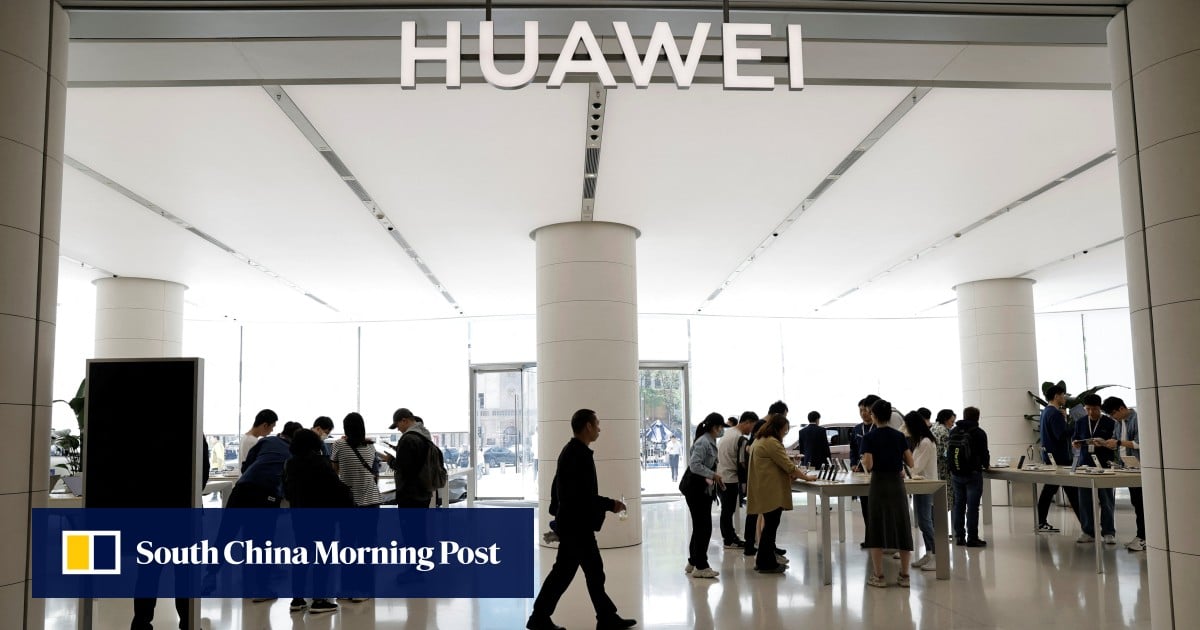HONG KONG — Chinese e-commerce leader Alibaba Group Holding, hit recently with a record $2.81 billion antimonopoly fine, is due to present Beijing with a comprehensive plan by Friday to rectify market practices regulators have deemed unfair.
The document is expected to set a benchmark for 33 other platform operators — including Tencent Holdings, Meituan and Pinduoduo — that have been given two more weeks by the State Administration for Market Regulation (SAMR) to address similar practices as part of Beijing’s effort to tame the outsized power of China’s internet companies.
Analysts expect the industrywide rectification to slow business growth for market leaders like Alibaba which have exploited their massive customer data pools and extensive range of interlinked services to see off most challengers. With nudges from Beijing, the leading platform operators are expected to turn increasingly toward business services for growth.
“I expect big companies like Alibaba and Tencent to generate slower growth in the future, since the government is putting a ceiling over their businesses,” said Leo Sun, a Taipei-based technology specialist at investment site The Motley Fool.
These companies should be able to continue growing their core businesses, Sun said, but their investments, acquisitions and loss-leading strategies will be scrutinized far more closely.
SAMR is requiring Alibaba to remedy problems including mandated exclusive contracts, data-driven price discrimination, unfair surcharges and punitive measures on merchants as well as improper acquisitions that enhanced its market dominance. The top regulator is also pushing for greater transparency by the e-commerce group in its use of personal information and for Alibaba to make more of its data and portals available to other players.
Alibaba will have to end longtime exclusive sales agreements that forbid merchants from listing their products and services on other platforms — a practice known as “picking one from two” — giving smaller rivals JD.com and Pinduoduo a chance to win business from some big brands.
This change will reduce the profitability of Alibaba’s core commerce business, Sun said, “which could impact its ability to subsidize the growth of its cloud and digital media segments.”
Though e-commerce still contributes the bulk of the group’s revenue, Alibaba has expanded its portfolio over the years to cover logistics, cloud services and media while also investing in startups in fields from bike-sharing to electric vehicles. Hello, a bike-sharing affiliate, last week filed for an initial public offering on the Nasdaq Stock Market.
Under Beijing’s call for “preventing the disorderly expansion of capital,” Alibaba is expected to keep a low profile in the short term, and slow its expansion and investment activities.
Jeffrey Towson, an online lecturer on China’s digital sector and former professor at Peking University, expects other platforms to adjust their sales terms with merchants during the rectification period. He thinks the fine slapped on Alibaba is “big enough to force rapid compliance” on the industry.
“This is China. All these companies are going to follow official instructions very closely,” he said. The 18.2 billion yuan ($2.81 billion) fine represented about 4% of Alibaba’s 2019 revenue.
Yet the dynamic among e-commerce players is unlikely to change much.
“As most marketplace platforms are based on this model, I think this will be applied to the majors fairly evenly,” Towson said.
Indeed, Alibaba is not the only company being investigated by SAMR for the “picking one from two” practice. The regulator said Monday that it had opened a probe into Meituan, China’s largest food delivery and services platform, over exclusive sales agreements the company is accused of forcing on merchants. The announcement comes even as Meituan was earlier included in the group of 34 companies told to submit a rectification plan by mid-May.
“These actions have made clear that officials are determined to bring the entire universe of internet platforms to heel, and are not simply carrying a vendetta against Jack Ma’s Ant Group and Alibaba,” said Ernan Cui, China consumer analyst at research company Gavekal Dragonomics, referring to the founder of the e-commerce leader and its finance-focused sister company.
Large internet platforms will see weaker growth in established businesses that have relied on the now-prohibited tactics, she said.
Though Cui does not expect the actions to change the established market structure where the winners are essentially determined, she said that “regulatory pressure could narrow the gap between market leaders and the rest of the pack.”
Crucially, the new controls on anti-competitive practices will apply especially to the development of new businesses. In previous battles among internet companies, players often achieved dominance by outspending competitors with subsidies in early stages of market development.
But regulators have become more skeptical about this behavior. SAMR last month fined five community group-buying platforms, including ones backed by Alibaba, Pinduoduo, Meituan and Didi Chuxing, a total of 6.5 million yuan for “improper pricing behavior.”
“It will take longer for one or two leading companies to establish themselves in new market segments,” Cui said.
Nevertheless, internet companies still have much room for growth even when their core consumer business slows.
Companies like Tencent, Alibaba and Baidu, which operates the country’s leading search engine and has invested heavily in artificial intelligence, are investing heavily in business services such as cloud computing. These services catering to business clients have higher requirements for technological innovation than consumer offerings. The growing regulatory scrutiny on consumer internet business will accelerate the trend.
“China is making a great effort to bolster the development of the industrial internet,” Cui said, and Beijing wants the big tech companies to put their resources into technological innovation rather than focusing on building walls to fence off others.






